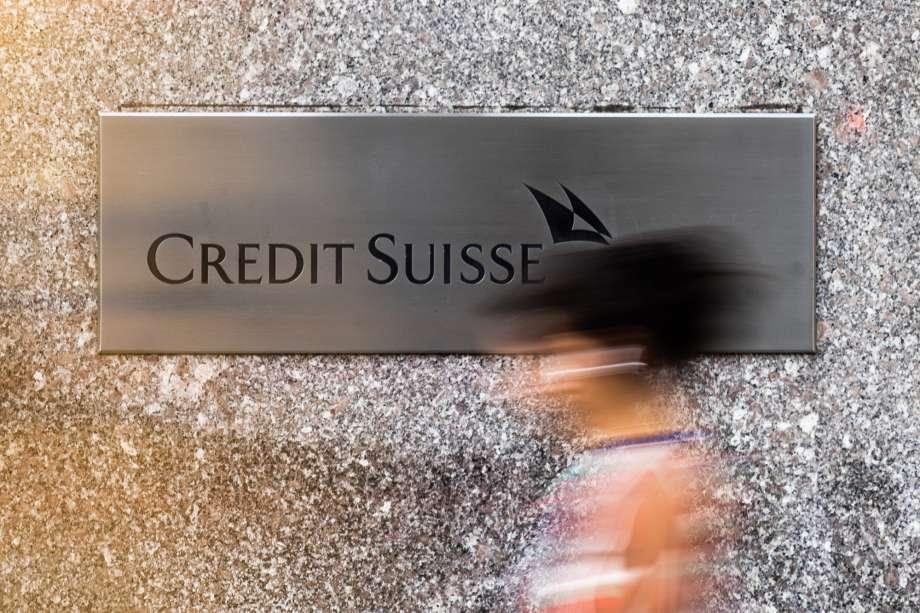Africa-Press – Mozambique. The settlements which the bank Credit Suisse reached with British and American financial regulators earlier this month, over the case of Mozambique’s “hidden debts”, are “far from the end of the scandal for Credit Suisse”, according to a report in London’s “Financial Times” newspaper.
The paper points out that the bank “still faces a tangled web of civil legal cases in London, an ongoing FBI criminal investigation and the further reputational damage to its business after its UK subsidiary pleaded guilty to wire fraud in a Brooklyn court last week”.
This will rumble on, despite the deal reached with the United States Security and Exchange Commission (SEC) and the British Financial Conduct Authority (FCA), under which Credit Suisse was fined around 475 million dollars for what the SEC described as “fraudulently misleading investors and violating the Foreign Corrupt Practices Act (FCPA)”.
In addition, Credit Suisse must forgive 200 million dollars of debt which Mozambique owed the bank as a result of corrupt loans to the companies Proindicus and Ematum (Mozambique Tuna Company). Mark Steward, Executive Director of Enforcement and Market Oversight at the FCA, said “The fine would have been higher if not for Credit Suisse agreeing to provide the debt write-off of 200 million dollars”.
No doubt Credit Suisse hoped the scandal will now go away. It won’t. “The idea of this being over for Credit Suisse is completely flawed,” Natasha Harrison told the “Financial Times”. She is managing partner at Boies Schiller Flexner, the US law firm that is suing the bank on behalf of creditors including Banco Comercial Português and United Bank for Africa.
“There is a huge amount of litigation running through the English courts at the moment and that isn’t going away. If anything, it’s getting stronger and stronger,” she said
The trial in the English High Court, involving the Ematum bondholders, is not set to take place for another two years, with the potentially embarrassing disclosure process due to start midway through next year.
Certainly the Mozambican Attorney General’s Office (PGR) will hope that the fines ordered by the SEC and FCA strengthens its case that the loan guarantees signed by Manuel Chang, Mozambican Finance Minister in the government headed by fomer President Armando Guebuza, are null and void, and so the entire Mozambican debt arising from the loans should be cancelled.
The settlement documents between Credit Suisse and the regulators detailed how the bank’s compliance staff had overlooked warnings about dealing with a contractor described as a “master of kickbacks”, “heavily involved in corrupt practices” and someone for whom “ethics are at the bottom of [their] list”.
This delicately unnamed contractor is in fact the Abu Dhabi based group Privinvest and its Lebanese owner Iskandar Safa. Privinvest became the sole contractor for Proindicus, Ematum and a third fraudulent company, MAM (Mozambique Asset Management). The loan money from Credit Suisse and from the Russian bank VTB went, not to the three companies, but to Privinvest.
Privinvest then sent grossly overvalued assets (including fishing boats, patrol vessels, drones and radars) to Mozambique. An independent audit of the three companies in 2017 found that Privinvest had overcharged the companies by about 714 million dollars. It was thus hardly surprising that US prosecutors found that Privinvest could divert at least 200 million dollars of the loan money into bribes and kickbacks.
The recipients of the bribes included the three Credit Suisse managers who negotiated the loans, Andrew Pearse, Detelina Subeva and Surjan Singh. In plea bargains with US prosecutors they all admitted to taking Privinvest bribes.
“There is a certain pattern here we have seen again and again at Credit Suisse,” one creditor who is suing the bank told the paper. “This is not just an element of bad judgment or looking the other way.”
Mozambican civil society activists are not at all satisfied with the Credit Suisse settlement to date. Denise Namburete, a prominent campaigner over the hidden debt, told the “Financial Times” she had “mixed feelings” over a victory that came after a long struggle for justice, but was nowhere close to paying back ordinary Mozambicans for the economic collapse they had suffered.
“The cost of the corrupt conduct by Credit Suisse is too high to be covered by a 475m dollar fine”, she said “The fines are far below the real cost.”
The penalties collected by the US and UK should at least go to projects that benefit the Mozambican people, Namburete said. “Not to the government. We don’t trust the government.”
Mozambican activists want all debts arising from the scandal – including that to VTB – to be torn up as illegitimate. Credit Suisse’s admission of fraud this week “reinforces the fairness and legitimacy of [our] demand for full cancellation of illegal debts”, the Budget Monitoring Forum, a coalition of civil society groups fighting on debt issues, said.
Namburete remarked that Credit Suisse was only brought to account after it was “cornered”.
“I don’t think they care about what is happening in Mozambique,” she added.
The three corrupt loans amounted to over two billion US dollars, but the true cost to Mozambique is much higher than that. A study by the Public Integrity Centre (CIP) showed that, between 2016 and 2019, the “hidden debts” had cost Mozambique around 11 billion dollars, and this figure could rise to 16 billion, if Mozambique is obliged to continue repaying the debts.
Factored into these caculations are the reactions of Mozambique’s foreign partners. When the true scale of the illicit loans became public knowledge in April 2016, the International Monetary Fund (IMF) suspended its agreement with Mozambique, and all 14 donors who gave some of their aid as direct budget support suspended further disbursements.
An immediate economic crisis, including substantial currency depreciation, followed. To this day, budget support has not resumed, and Mozambique is still struggling to repair the damage to its reputation.
For More News And Analysis About Mozambique Follow Africa-Press






